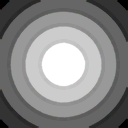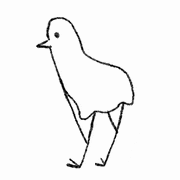What a coincidence, I was just thinking about making a guide on the plague of the blue light scam the other day but now CBC has investigated it formally:
I'd advise everyone watch this as this is a tech forum and this scam generally targets people who use a lot of technology. A TL;DR of the findings though is this:
- There is no evidence that blue light causes harm to our eyes, despite what these stores will try to tell you
- There is plenty of blue light in nature anyway, and people have been exposed to it for thousands of years. The small amount coming from our devices is nothing compared to these natural sources and is not creating an increased risk.
- Your devices have a built in way to reduce the blue light emission anyway if you are so inclined. This is supported on Windows 10, iOS, Android, several DEs on Linux, and I'd assume MacOS as well.
- Blue light does interfere with your sleep and you may want to reduce it for that reason, but this is selective and not something to do throughout the day. This is not new knowledge at this point though, and is a separate issue to the spiel about damage.
-

-

I'm not sure exactly what range of wavelengths the body uses in that context. I did find this image but I have no idea if it's scientifically based or just a totally made up artist's impression:
I have a feeling it's probably not a huge issue though. You're likely to notice a much more significant change by swapping your light bulbs from 6500 or 5000 K to 3000 or 2400 K than you are from repainting the room. Ultimately though if you find you are able to fall asleep easily when you want, then there's nothing you need to change about your life. If that is an issue though, I recommend doing the following a few hours before sleeping:
- Use the blue light filter or night mode available on your devices, or put on a set of glasses like this. Rather than just slightly reducing blue light, these will virtually eliminate all blue light completely, both from your devices and your surroundings, and can be worn over other (normal) glasses, and are much cheaper than specialty blue-light filters or computer glasses. As an added bonus, they are completely functional safety glasses.
- Switch your room lighting from bright white to dim and warm by turning off the main light and turning on a lamp
-

i mean blue light kinda makes my eyes feel weird, but it doesn't hurt or anything nor has my vision decreased even after staring at a screen for 4+ hrs a day for 3 years
turning on night mode/nightlight is less bright to me, plus it doesn't make my eyes feel like i slapped on a pair of blue glasses
-

I'm in no way qualified or able with the current information to diagnose this, but I have heard of a condition that makes people very ... I suppose the best word is "adverse" to blue light - mind you not blue light the way it's described here, which means any light that has a blue component, whether it looks blue, purple, white, etc., but purely blue light. There's a small chance you may have that I suppose.
-

-

The only adjustment I'd make to that is that it's not just the artificial sources, it's any source, since your eyes can't tell the difference between a 483 nm wave coming from a monitor vs one coming from the sun, and it's also reasonable to assume this mechanism evolved to make us sense daylight or the lack thereof, rather than computers which we've only had for less than a century.
I've not explicitly mentioned it since it has been implied and should be assumed from the existing information, but just as avoiding blue light is important for getting to sleep, getting enough blue light is important for waking up and staying awake. There are devices specifically designed for this purpose that can be used to treat depression, and it's understandable that anyone would not want to miss out on anything that could keep them more active and alert during the day - just look at how many people turn to coffee for a boost in this regard. To give an anecdotal example, I've joked that I am solar powered in the past as waking up when the window is open and it's bright out is so much easier for me than getting up in a dark room.
-

Yea, our biological cycles did not evolve with technology in mind, so as you stated, our individual sensors can't tell the difference between the sources of light. This same thing happens in plants as well with regards to flowering; the amount of light they receive dictates whether they make flowers or not, so artificially messing with that cycle using flashlights or the likes can stop/initiate flowering. (This is an over simplification of how plants react to seasonal changes with regards to flowering, but hopefully it's clear enough)








